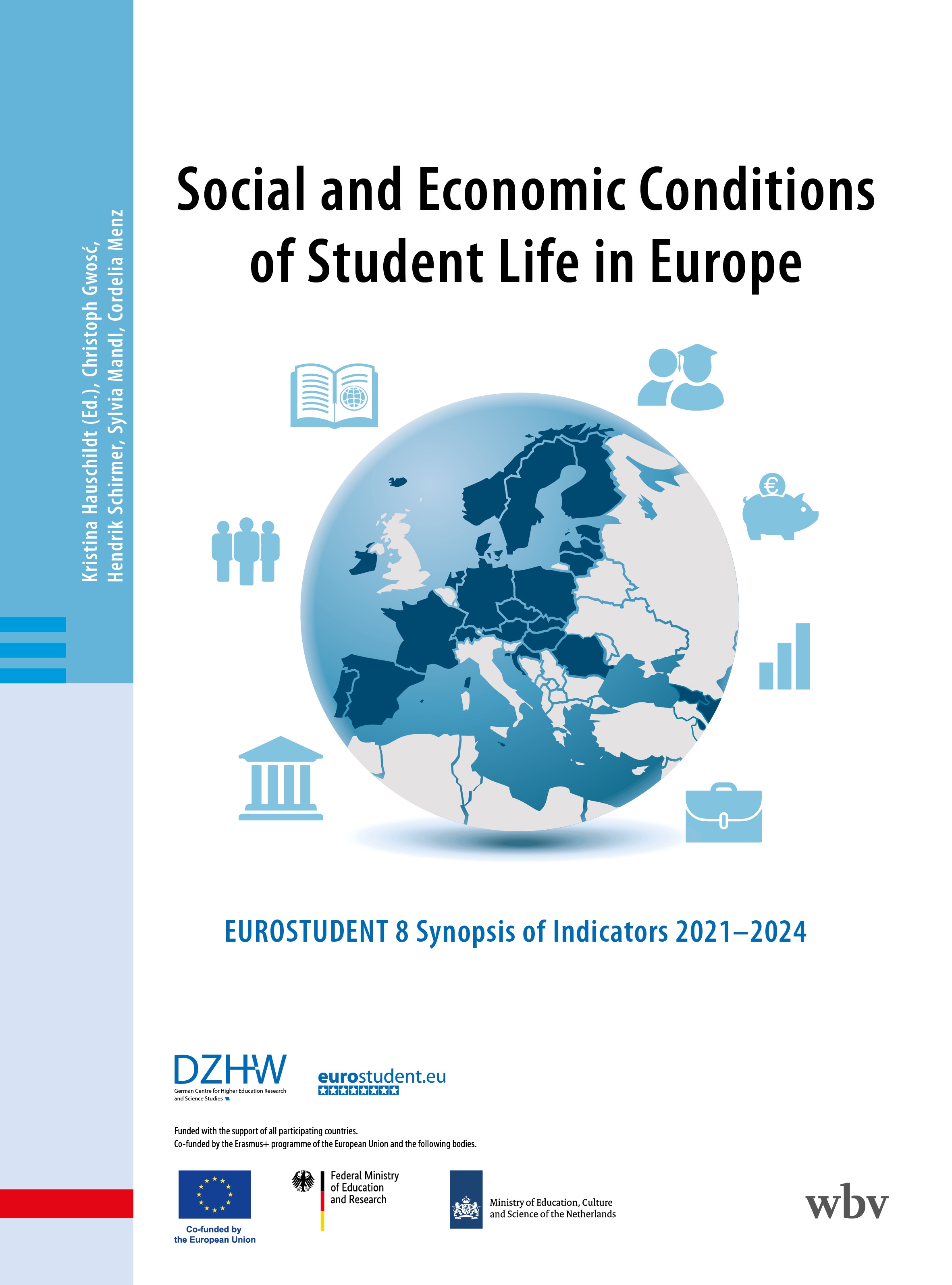Students’ time budget
Studying often goes along with more freedom of choices and expectations of being an independent learner compared to being in secondary school. Starting higher education also offers a variety of new opportunities and students need to juggle many responsibilities. Hence, one of the many tasks of students is to organise their daily schedule. On average across all EUROSTUDENT countries, students spend 48 hours per week on study-related activities and work, with most of the time (18 hours) spent on personal study time, closely followed by taught studies (16 hours) and work (14 hours). These numbers vary greatly between countries and students. Therefore, this chapter will focus on the time budget of students with different characteristics, for example, full-time/part-time students, (non)-working students, different types of higher education institutions, various fields of study, and types of study programmes. Taking a closer look at working students, for instance, it can be reported that working while studying affects both students' free time and their study time. Overall, data presented in this chapter give insights into students' schedules including a cross-country perspective.
Beiträge
Open Access
Open Access
Open Access
Open Access
Open Access
Open Access
Open Access
Open Access
Open Access
Open Access
Open Access
weitere Infos
Menz, C., & Mandl, S. (2024). Students' time budget. In K. Hauschildt (Ed.), Social and economic conditions of student life in Europe. EUROSTUDENT 8 Synopsis of indicators 2021-2024. wbv Publikation. DOI: 10.3278/6001920ew005
